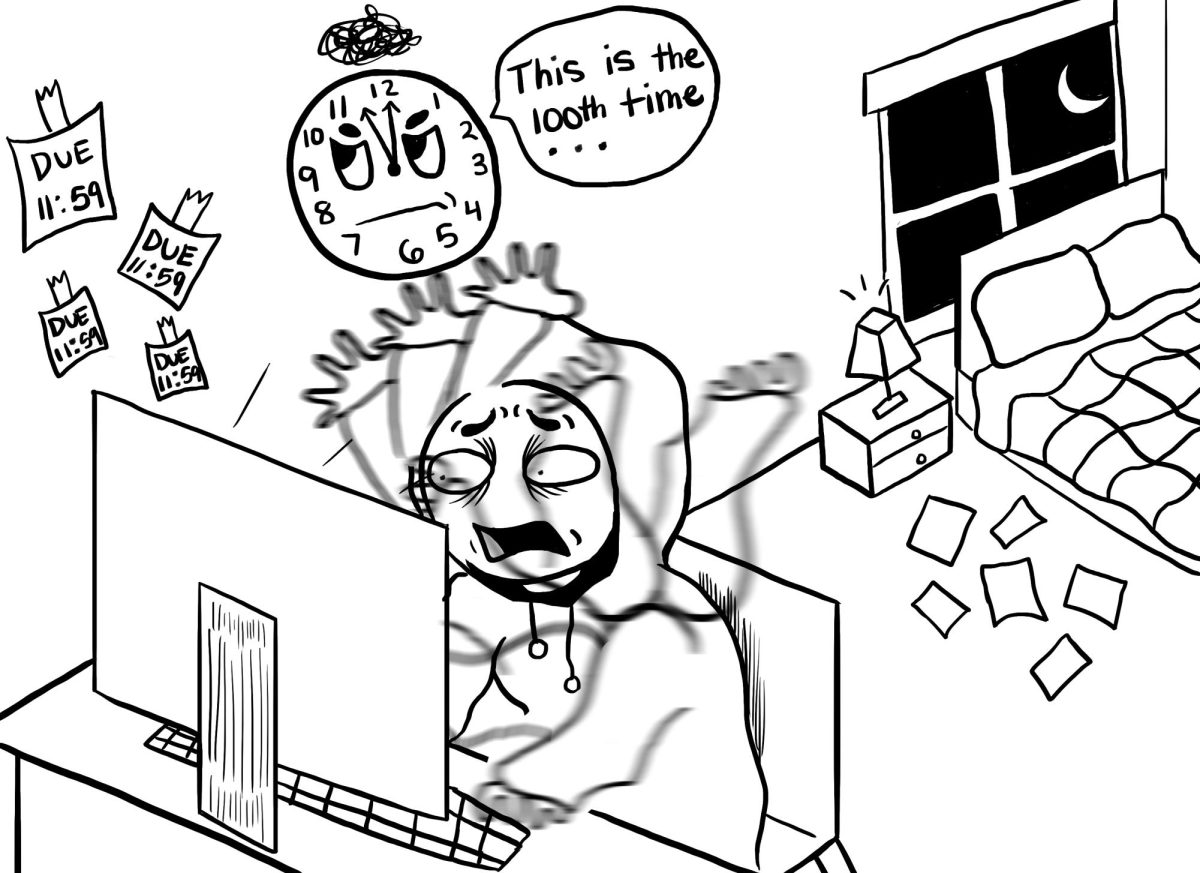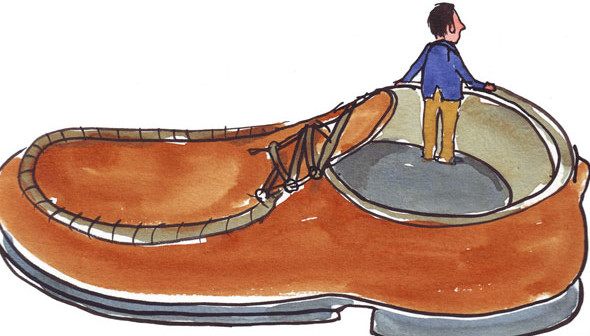Go to sleep. Scroll on your phone. Turn on the TV and sleep some more. Avoid the notifications of new assignments for as long as possible—all patterns that today’s students have become too familiar with. I have lots of time to do it later, right? Five more minutes won’t hurt. Does that sound familiar? It’s no surprise; procrastination is an enormity that plagues millions of students every day.
Many students nowadays are struggling and put off their assignments until the last minute. The act of procrastination is negatively affecting many student’s mental health, grades, and future working habits.
I, myself, am guilty of struggling with procrastination—in fact, I’m procrastinating with this very article. There are so many different distractions that contribute to procrastination, and one of the main culprits is the use of technology in our everyday lives. Phones and computers are one of the main causes for procrastination because it has shortened the attention span of kids who grew up with technology, which includes Gen Alpha and late Gen Z.
I have noticed that many students (including me) wait until the very last minute before the deadline to finish assignments—so, I asked some of my classmates why they think it’s so common for people to procrastinate. A Canyon senior, Sydney Bledsoe, responds saying that as students, “we often choose temporary pleasures over permanent ones…we think ‘oh I’ll do this later and I’m going to relax now.’”
Individuals who follow this “I’ll do it later” complex experience more stress because work often goes unfinished, and in turn feel less confident because of the impression that they did not accomplish anything. Speaking from personal experience, procrastination leads to a constant cycle of putting off assignments until it becomes overwhelming.
On top of that, a student’s grades can suffer from this pattern as well. This is due to some assignments not being completed on time because they did not have enough time to finish them before the deadline or due to being overwhelmed by work piling up.
The procrastination pandemic needs to be dealt with, because it only gets harder and harder to get away with procrastinating as students progress through the school year. Should these bad habits continue into college, it could cause major problems and much more severe consequences. One could end up dropping out or miss opportunities because of procrastination.
For these reasons, we as students need to stop procrastinating on our work; however, it’s easier said than done. Simply wanting to do something does not mean that it will actually happen. In order to help with procrastination, one thing that can be done is planning out our work schedule.
By writing down a list of tasks that need to be done, our minds will be able to focus better. We will see everything that needs to be accomplished, making dreaded tasks more approachable and easier to start.
It is also better to put harder tasks in the front of the list instead of saving it for the very end. By putting priority on difficult tasks first, accomplishing it will make you gain confidence and the motivation to complete others on the list, because you now know it is possible to complete something with that level of difficulty.
In reality, most of us are capable of submitting work on time; the impossibility of escaping these unhealthy habits is just in our minds! Believe in your capabilities to complete assignments—because most of the time, they aren’t as difficult as you’d think; you just need to start. Don’t put off what you can do today, and get that homework done!









